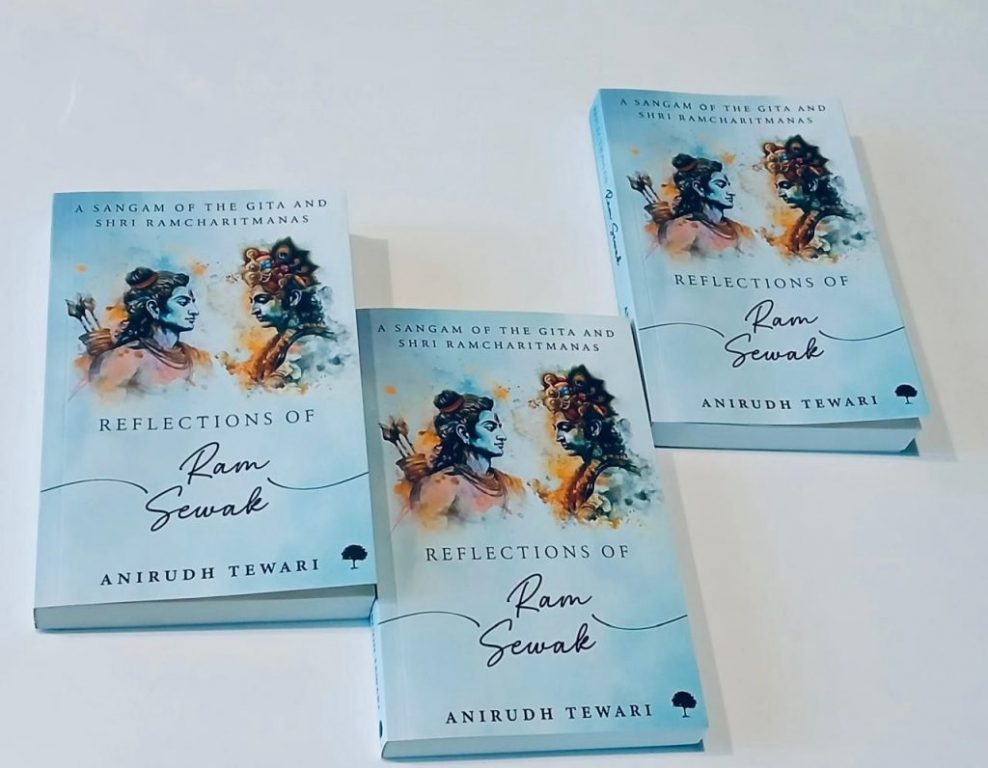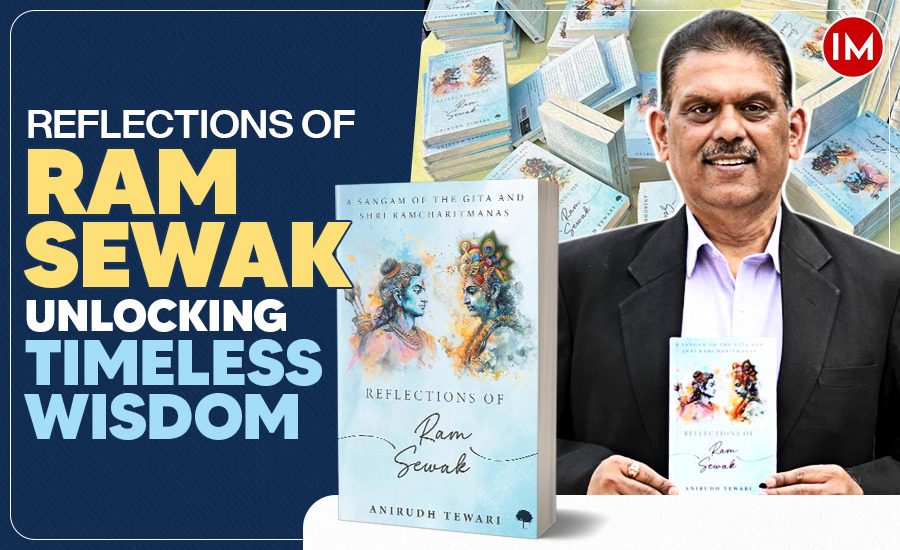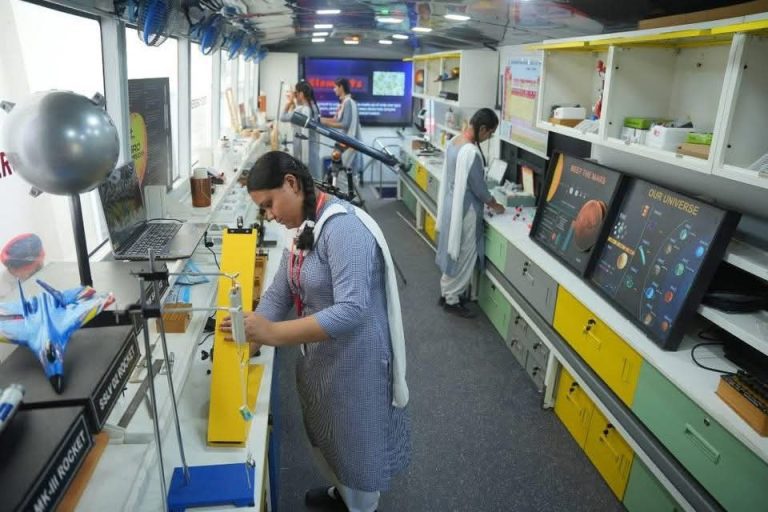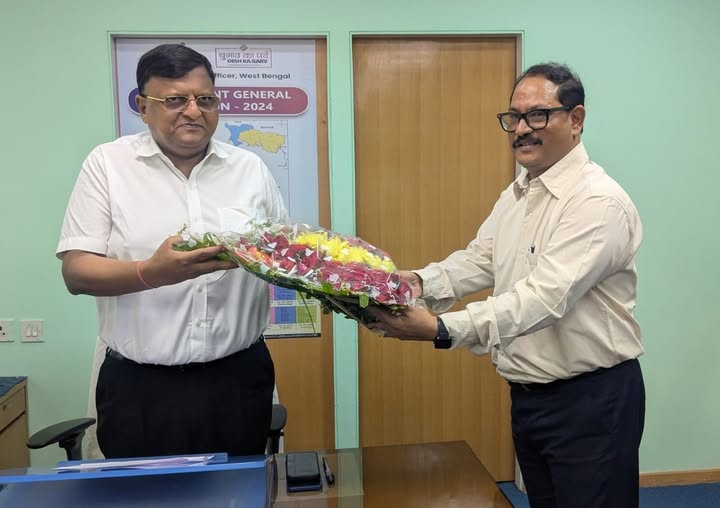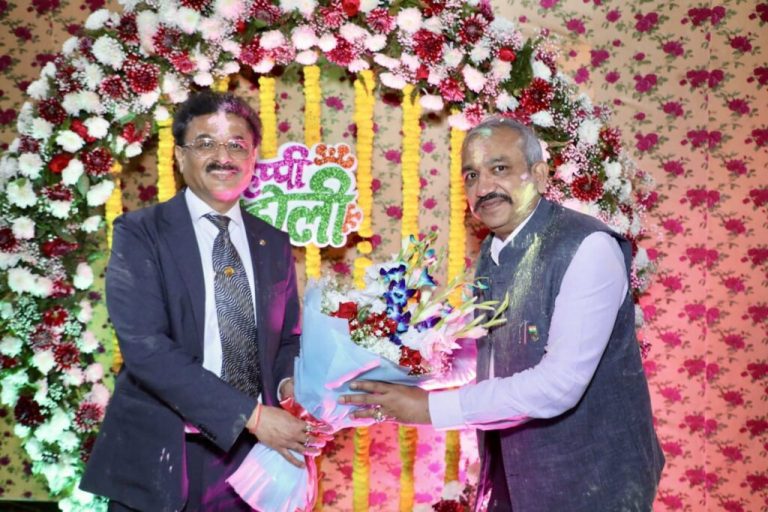The ‘Bhagavad Gita’ and the ‘Shri Ramcharitmanas’ are two of the most revered texts in Indian philosophy, spirituality, and culture. Both are celebrated not only for their narrative richness and historical significance but also for the deep philosophical and ethical insights they offer. These texts have shaped the lives of millions in India and worldwide. Yet, have you ever considered how, despite distinct works with separate stories, they share striking similarities in their underlying principles and philosophies? From the concept of the soul to asceticism, there are many striking similarities; there are remarkable commonalities that tie them together.
Anirudh Tewari, a 1990 batch IAS officer and former Chief Secretary of Punjab, seeks to explore these connections in his first book, ‘Reflections of Ram Sewak.’ With his remarkable writing skills, Tewari delves into the profound wisdom of these two revered spiritual texts, offering readers a unique perspective that intertwines their timeless messages. By drawing parallels between the verses of the Ramcharitmanas and the shlokas of the Bhagavad Gita, he provides an in-depth understanding of their transformative power. His reflections invite readers to embrace core values such as integrity, love, compassion, and purpose while navigating the complexities of modern life.
In a recent conversation with Indian Masterminds, Mr. Tewari shared more insights into his book and the journey that led him to explore these timeless teachings.
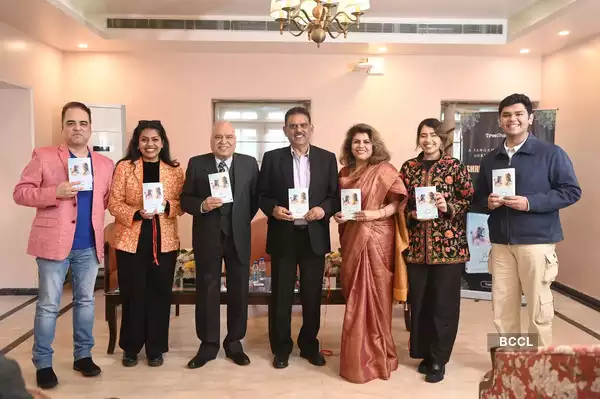
RAM SEWAK
This book is a heartfelt tribute to the author’s late father, Ram Sewak, a man who held deep faith in Lord Rama. The book, named in his honor, reflects his enduring devotion. It took him about one and a half years to complete the writing. He began in April 2023, and the book was finished and published by October 2024.
Comprising around 54 chapters, the book covers a wide array of topics. It delves into various episodes and teachings from the Ramcharitmanas, examining Lord Rama’s spiritual dialogues and his encounters with key figures. These include Lord Rama’s conversation with Vibhishana, his meeting with Shabari, and his dialogue with Lakshman, among others. In each chapter, the author explores how the philosophical teachings embedded in these stories resonate with the wisdom of the Bhagavad Gita, providing readers with meaningful insights and messages for life.
He said, “In the book, I reconnect two of India’s greatest spiritual texts – written 3,000 years apart. Despite their temporal distance, remarkable philosophical similarities connect them. This book highlights how the shlokas of the Gita are reflected in the teachings of Tulsidas ji and how his chaupais (verses) echo the same spiritual wisdom. I aim to show that the Ramcharitmanas is not just a story of Lord Ram but a profound philosophical guide, offering life lessons and sutras that align closely with the Gita, underscoring a continuous spiritual tradition through the ages.” He referred to it as a sangam of both great books.
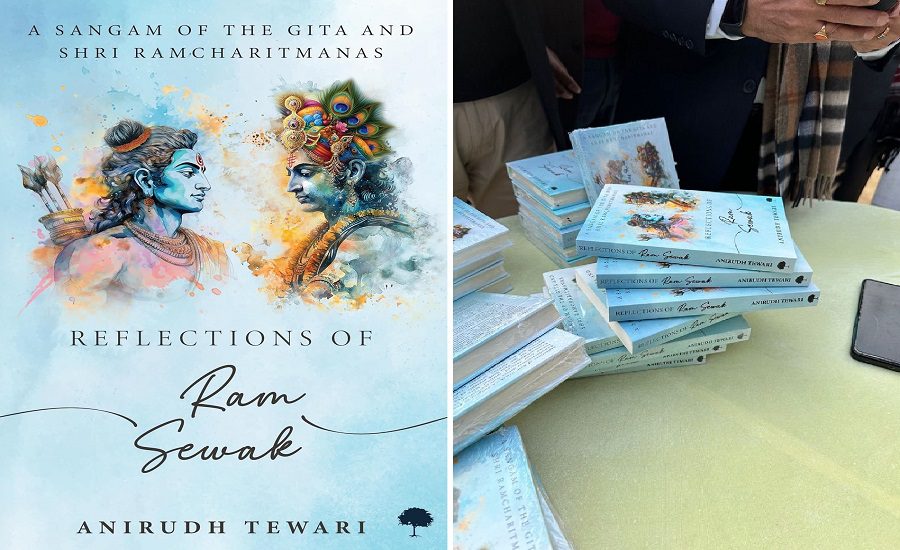
RELIGION AND PHILOSOPHY
This book truly illustrates how our spiritual heritage has woven a continuous thread of philosophical thought for millennia, united by a shared sense of purpose and understanding. From a religious perspective, the Bhagavad Gita and the Ramcharitmanas narrate the stories of two distinct incarnations – Lord Krishna and Lord Rama. However, both incarnations impart the same profound philosophy and invaluable life principles. Concepts like the soul, surrender, and the nature of illusion (Maya), along with the path of renunciation (Vairagya), are central to both texts. It emphasizes the timeless relevance of virtues such as truth, forgiveness, self-control, contentment, and compassion. “This book explores how these timeless teachings are echoed in both the Gita and the Ramcharitmanas, highlighting their shared wisdom,” he added.
It is a profound exploration of how the spiritual paths of Bhakti (devotion) and Gyan (knowledge) intertwine, offering readers a fresh perspective on how these paths can lead to personal fulfillment and a world grounded in core human values.
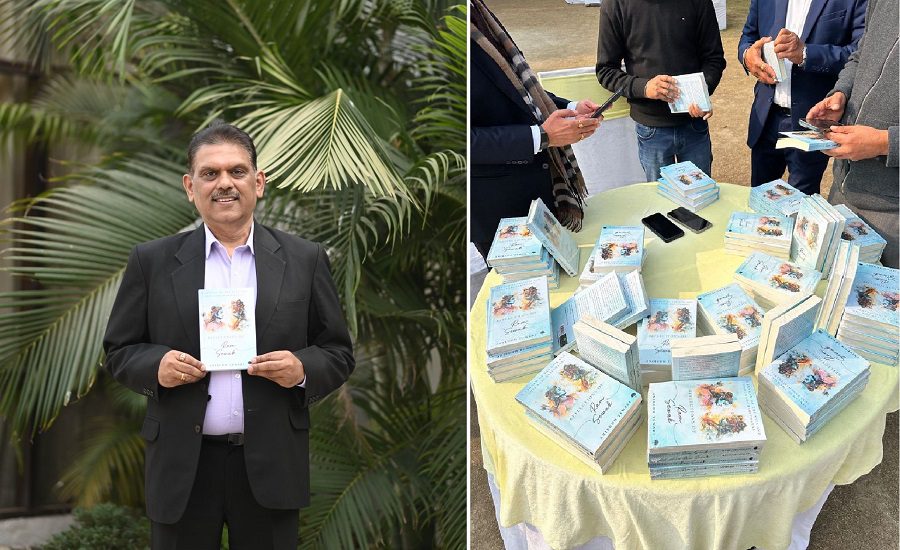
GOD’S GRACE
When asked how he managed to find time to write while holding such a high-ranking and demanding position, IAS Tewari humbly attributed it to divine inspiration. “If you truly wish to do something, everything becomes possible with God’s grace,” he said. “It was His blessings that provided me with the time and strength to write this book and delve into such profound subjects.”
A JOURNEY OF ADMINISTRATIVE EXCELLENCE
With over 30 years of experience in the Indian Administrative Service, he possesses extensive policy expertise at both the state and national levels. Hailing from Patiala, Punjab, he has spent the majority of his career working within the state. However, he also had the opportunity to serve with the central government for five years in Delhi. He has held the esteemed position of Chief Secretary of Punjab and is currently serving as the Special Chief Secretary of Punjab, in addition to his role as the Director General of the Mahatma Gandhi State Institute of Public Administration, Punjab.
Born on April 2, 1967, in Punjab, he began his career as SDO in Sangrur and later served as Additional Deputy Commissioner in Ferozepur, where he contributed to land reforms and administrative improvements. Tiwari also served as Deputy Commissioner in Sangrur from 1998 to 2001.

In 2001, he was deputed to the central government, working in the Ministry of Finance and as the Coordinator for India at the International Fund for Agricultural Development (IFAD), focusing on rural development and poverty reduction.
Upon returning to Punjab, Tewari held various key positions, including CEO of the Punjab Bureau of Investment Promotion and Principal Secretary for Industry and Commerce, Finance, and Renewable Energy. He later became the Chief Secretary (from Sep 2021 to July 2022), Finance Commissioner of Development, and Additional Chief Secretary for Agriculture, Horticulture, and Food Processing. His career reflects significant contributions to governance, investment promotion, and agricultural reforms in Punjab.
To Buy Book, Please Click on the link below-
